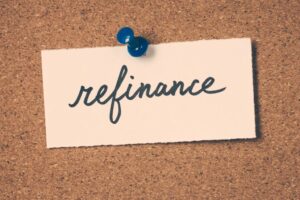Choosing a credit card needs some careful thinking because you would be using it for a long time. Indeed, you can change credit cards at will, but it can be quite inconvenient if you have shared the credit card details for online accounts and set up auto pay on the card. You need to update the new credit card details with so many accounts that it could turn out into a harrowing experience. Therefore, considering that you will have a long-term relationship with credit cards, you must pick the right one the first time.
On going through this article, you will gain enough insight into the steps to follow that ensures choosing the most suitable credit card.
Be clear about the purpose of using the credit card
A credit card like the Firestone Credit Card that is right for your friend might not be right for you because it all depends on how you want to use the credit card and for what purpose. When you know why you need the credit card, it becomes easy to take the right approach to select the appropriate credit card. The choice of credit card largely depends on the way you want to make use of it. For general spending, credit cards that carry low-interest rate and offers generous rewards would be most suited subject to whether you want to carry a balance or not. If you want to use the credit card for business or debt consolidation, the card options would be quite different. You need to find a credit card that meets your purpose.
To carry or not to carry a balance
Whether you would like to carry a balance on your credit card or maintain zero balance determines the kind of credit card that helps to realize your objective. When you carry a balance, you must pay interest, and any credit card that carries lower interest would be most preferred as the benefits are more than availing sign up bonuses and other reward programs taken together. Rewards usually range between 1% and 2% of the purchase value, and it does not help the cause of carrying a balance with higher interest.
Moreover, you can prioritize the interest paid by choosing a credit card that offers 0% interest for a limited period on purchases. If you can pay off the balance before the expiry of the promotional period or transfer the balance to some other credit card, you need not pay any interest.
Mind your spending habits
Your spending habits determine what kind of credit card would be most beneficial for you. If you do not want to carry balance and capable of paying off your dues on time without incurring interest, then you could gain from the rewards on purchases by choosing that kind of credit card. From travel to groceries purchase and many other selected purchases, credit card companies reward users to encourage more purchases. This is a mutually beneficial arrangement because the increased use of credit cards increases the rewards. It means that the choice of credit card has a direct link to your lifestyle that governs your spending habits, and it is important to ensure that the credit card matches with your lifestyle.
Are rewards useful for you?
Rewards are attractive, but it must be useful to you. Earning rewards becomes more meaningful only when you make good use of what you get. While you must manipulate spending to maximize the rewards, at the same time, you must ensure that you will use it. Earning air miles as a reward have no meaning for people who do not fly at all. Again, the timing of redemption of your reward points is a matter to consider because it is pointless to redeem reward points at times that do not match with your expectations. Availing cash back and putting it into an investment account to create a corpus for use after retirement is a meaningful way to use credit card rewards and if this is your goal you can select a credit card that gives such rewards. Credit cards with reward points to redeem for gas would be ideal for those who love long road trips.
Credit limit
Since you would like to make maximum use of credit card to enhance the rewards and other incentives, it is natural that the credit limit must be high enough. If the credit limit is not high enough, you would max out the limit after a few purchases and even lose opportunities of earning more rewards. Consider your spending habit to determine what kind of credit limit could support it comfortably and shop for suitable cards. However, your credit history influences the credit limit. To minimize risks, some credit card companies prefer to keep the credit limit to an amount lesser than the current balance of cardholders.
Balance computation method
If you intend to carry a balance on your credit card, then you need to understand the method of calculating finance charges that differs between credit card companies. Average daily balance is the most common computation method followed by credit card companies by adding the daily balances and then dividing it by the number of days remaining of the billing period. Some credit card companies use two billing cycles or period for calculating the balance, and you must keep away from it as it translates into higher finance charges.
Fees and penalties
Credit cards attract a variety of fees from transaction fees to charges for cash advances and balance transfers, and you may have to pay charges for making a payment over the phone. Besides, there are late payment charges and overdraft charges in case you exceed your credit limit. Normally, credit card companies would be happy to collect money for exceeding credit limit instead of stopping you. Compare various fees payable and its rate and choose a credit card that offers the best deal in terms of fees and charges levied on card usage.
If the fees and charges are too high, no matter how good other rewards might be, it is better to keep away from such credit cards.








